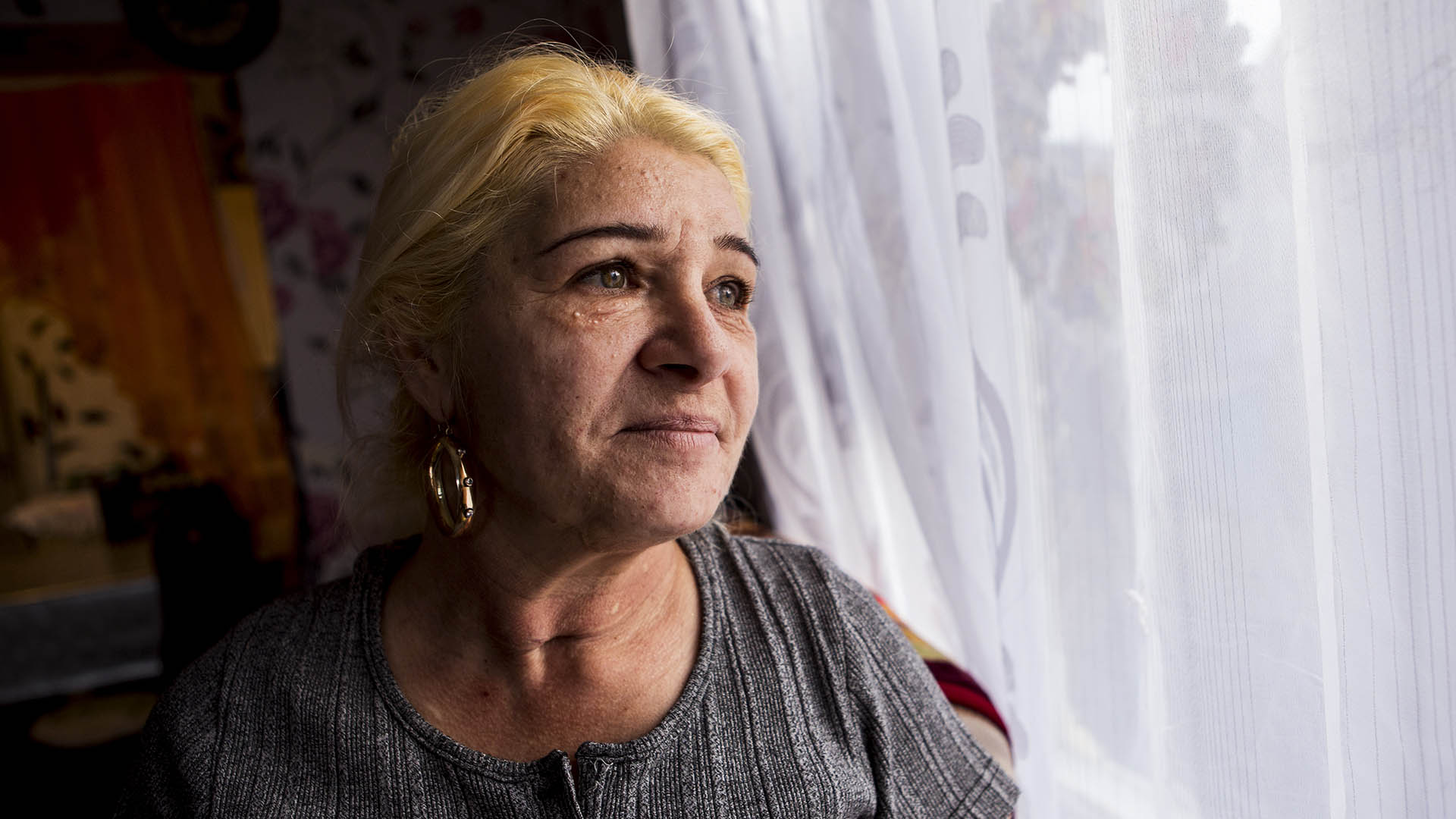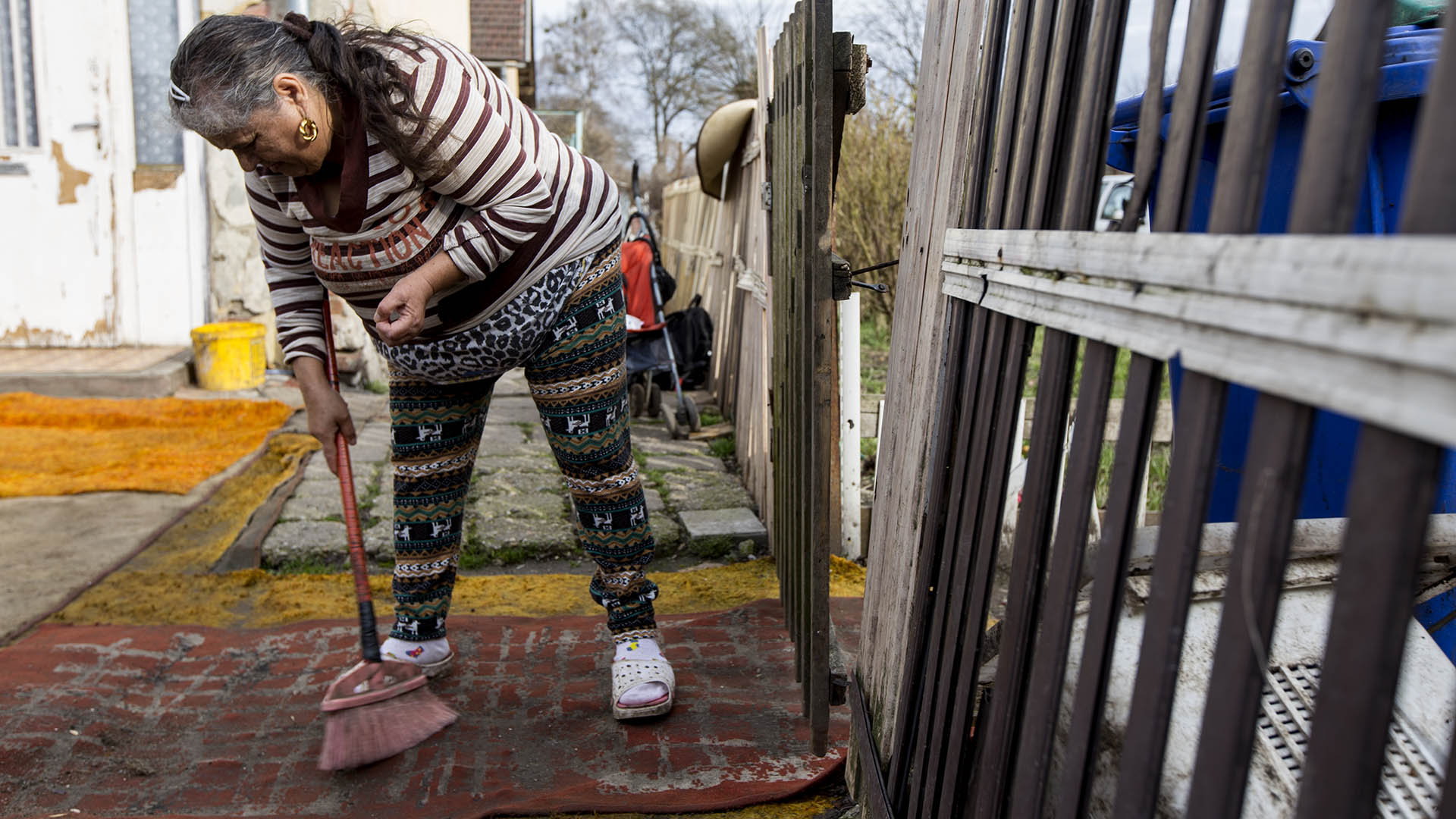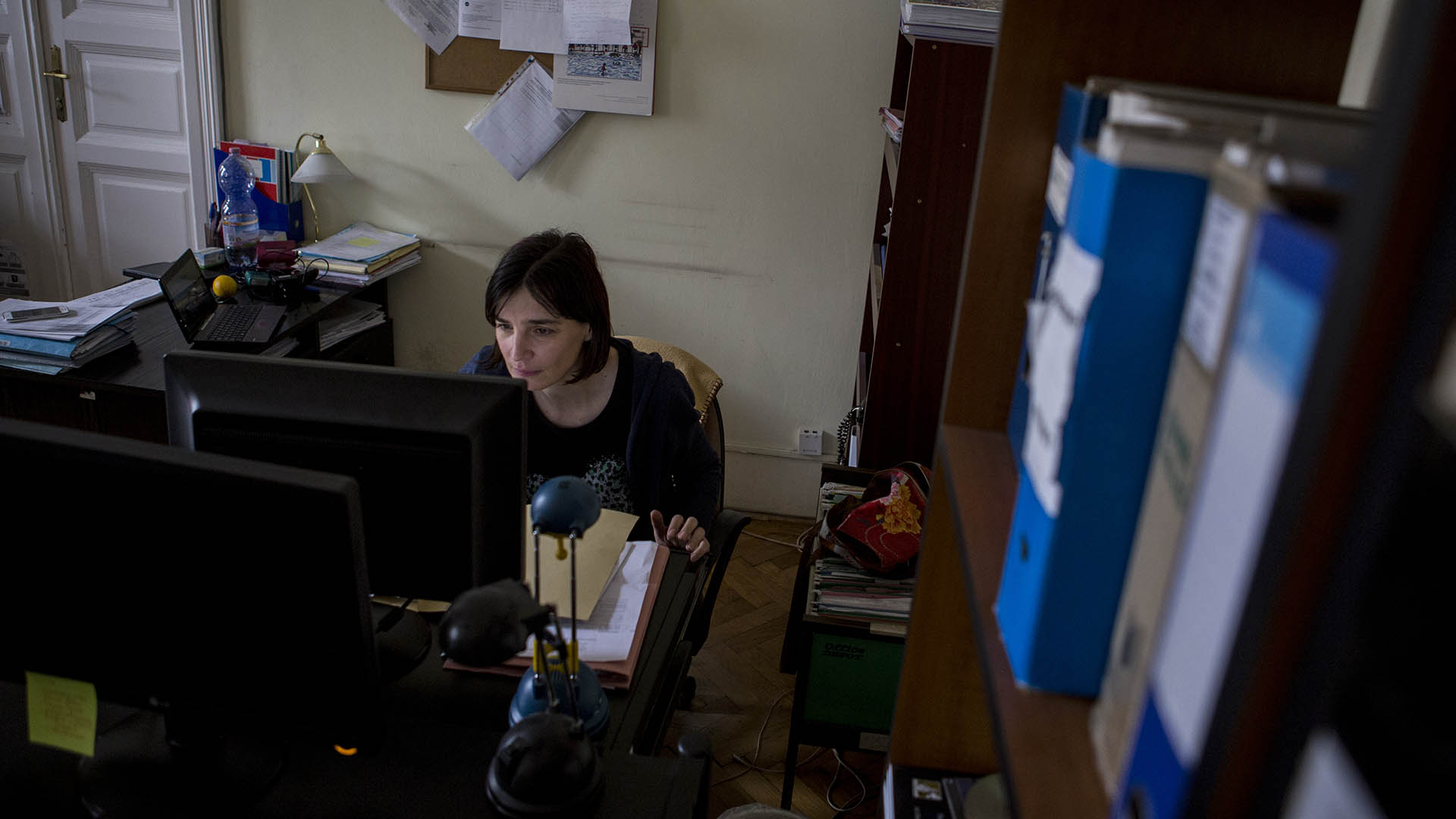

By Sean Logan / Cronkite Borderlands Project
Published July 11, 2016
MISKOLC, Hungary — Éva Molnár’s family got the eviction notice while she was in the hospital being treated for severe burns after her house burned down.
The eviction notice, delivered March 1, 2015, wasn’t the result of the fire’s destruction.
Molnár’s family is one of more than 120 that have been forced to leave the “Numbered Streets,” a poor Miskolc neighborhood consisting mostly of Roma, Hungary’s largest ethnic minority.
Molnár, 48, and her husband, József, 51, moved in with friends in Lyukóvölgy, an impoverished Roma neighborhood minutes away from their old one. But they worry about what they will do next. They worry no one in government will care.
“It’s hard that no one is listening to us when we have so much to say,” said Molnár.
The evictions began in summer 2014, after the local government decided to redevelop the area, eliminating a section of publicly subsidized, low-income housing. The tenants who were forced to leave were evicted mainly because their rental contracts had expired or they were behind on rent.
Local government officials — who did not respond to requests for interviews — have said in published reports that the evictions are addressing urban blight in a crime-ridden neighborhood. Part of the neighborhood is slated to be turned into a parking lot for a renovated soccer stadium.
But local activists contend the move is part of Hungary’s history of discrimination against the Roma and a continuation of efforts to drive them out of urban centers and to segregate them in substandard rural communities.

“This is a new form of ethnic cleansing, where Roma are pressured into either a Roma ghetto or emigrating to Canada,” said Aladár Horváth, president of Roma Parliament, a non-governmental organization in Budapest that provides legal assistance and representation for Roma, noting that some of the evicted have opted to leave the country.
What makes this case unusual is that local officials offered the residents cash — 2 million forints or about $7,300 — if they moved out of the city and agreed to not sell or remortgage purchased property for at least five years.
That caused a backlash in the suburbs. Nine municipal councils outside of Miskolc, a city of 160,000 in northeastern Hungary, adopted decrees that would exclude anyone purchasing property in their municipalities from receiving government benefits, public housing or public employment, according to a joint report from the Office of the Commissioner of Fundamental Rights.
But the low-income residents of the Numbered Streets won a key decision when Hungary’s Supreme Court, the Curia, ruled in May 2015 that the city’s action targeting the Roma was illegal. The court said the city’s decree discriminated against those living in low-income public housing because people living in higher quality public housing were offered the possibility of relocating within the Miskolc city limits.
In a subsequent decision in July 2015, Hungary’s Equal Treatment Authority fined the municipality 500,000 forints, about $1,800, and ordered the city to draw up a plan to accommodate the displaced low-income residents. So far the city has refused.
“Steps to eliminate the slums will continue,” Miskolc Mayor Akos Kriza was quoted as saying in a Daily News Hungary article from January. Kriza said the elimination of the slums was one of the city’s most important goals, supported in a petition reportedly signed by 35,000 local residents.

The evictions in Miskolc have displaced hundreds of Roma, known derisively as gypsies, who have faced discrimination and problems with social integration in Hungary and around Europe for hundreds of years. In Hungary, about 60 percent of Roma live in secluded rural areas, segregated neighborhoods or ghettos, according to government data from 2011.
For about 40 families evicted from their homes in Numbered Streets, the rural option wasn’t appealing. They sought asylum in Canada, but not all of the requests were granted, according to activists.
Those families who still live in the Numbered Streets neighborhood live in fear that they, too, will be forced to leave with nowhere to go.
“I don’t mind the houses getting evicted, but I do mind that we have no opportunity to go to another place afterword,” said Istvane Nagy, who has lived in her house since 2004.
Nagy, like Molnár, has also suffered health problems. Her left arm is always at a 90-degree angle against her chest, and her palm faces up with curled fingers as the result of a stroke. She said she can barely afford medicine.
Nagy said Kriza, the mayor who has vowed to continue the evictions, was once her doctor for 10 years. Nagy voted for Kriza because she thought he would be good for the residents of the Numbered Streets neighborhood.
“But he’s not,” she said. “He knows us very well… I have no clue what happened to him.”
Nagy said the last time she talked to Kriza was some time in 2000, when he was still her doctor.
“He’s not willing to talk to us anymore,” she said. “He’s not willing to talk to anybody.”

The mayor and the deputy mayor did not respond to multiple e-mail requests for interviews.
When the evictions began, Nagy said she didn’t take them seriously and wasn’t fearful because she wasn’t behind on her rent. But now, Nagy said her rent has been doubled for a house that has no running water and no toilet.
Index, a Hungarian news site, reported in April 2015 that the government increased monthly rent from 8,000 forints, about $30, to 14,000 forints, about $50, not much by U.S. standards but difficult for the Roma population where unemployment is rampant.
Erika Muhi, executive director of the Legal Defense Bureau for National and Ethnic Minorities, said after they began doing fieldwork in Miskolc, it became clear that the city was trying to get rid of segregated areas without offering social policy solutions.
“It is a very grave violation of rights,” Muhi said. “Miskolc has breached its domestic and international legal obligations… and in the 21st century, it should be impossible for a municipal government to do such things.”
Muhi went to the Numbered Streets in the summer of 2014 to talk to locals and record complaints. She said at that time, the neighborhood was a perfectly livable place. Now, with many residents gone, conditions have worsened.
“I keep saying that Miskolc can be one of our greatest failures, or one of our greatest successes, as well,” Muhi said. “The right to accommodation is a human right. And Miskolc sets a counter-example — an example of how not to do an accommodation policy.”

Gábor Váradi, president of the Roma Minority Self-Government of Miskolc, said that many of those who were evicted for being behind in rent could have been given chances to pay a little at a time.
“Although the government calls itself ‘Christian,’ there is no Christianity in their behavior,” he said. “The only thing we want is that we all stay human and that the politicians should look at us as humans, which they especially now don’t do.”
Hungarian government officials have little political incentive to address the plight of the Roma or other minorities, Varadi said, noting that the government’s tough stance against Muslim refugees in 2015 increased its political support.
“We saw that in the migrant crisis, that as long that there is political use in it and a political advantage in it, Hungary will simply not step forward in that problem-solving process,” Varadi said. “Hungary won’t solve itself, and it doesn’t have the will to solve itself because as long as xenophobia brings advantage, they won’t solve it.”
Buffett student projects include: Nicaragua: Channeling the Future | Chiapas: State of Revolution | Two Borders | Puerto Rico: Unsettled Territory | Stateless in the Dominican Republic | South Africa: At the Crossroads of Hate and Hope | South Africa Documentary | Borderlands Photo Essays | Divided Families (PDF) | Divided Families Documentary | Children of the Borderlands | South Africa Project
Cronkite News is the news division of Arizona PBS. The daily news products are produced by the Walter Cronkite School of Journalism and Mass Communication at Arizona State University.